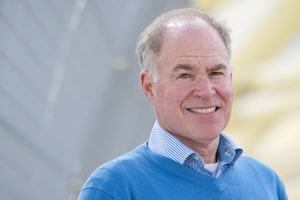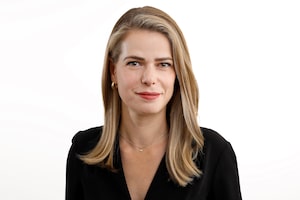British police officers monitors the perimeter near Westminster Palace in London on Sept. 16.Nathan Denette/The Canadian Press
Queen Elizabeth II will be laid to rest on Monday in a funeral service that will include more than 10,000 servicemen and women, and two minutes of silence across Britain.
The Queen’s coffin has been lying in state in Westminster Hall since Wednesday and hundreds of thousands of people have paid their respects. On Monday morning, the coffin will be carried on a gun carriage to Westminster Abbey with King Charles III and other members of the Royal Family walking behind.
The funeral service will be attended by 2,000 guests, including Prime Minister Justin Trudeau, U.S. President Joe Biden and other heads of state from across the globe. British Prime Minister Liz Truss and Patricia Scotland, the Commonwealth Secretary General, will read passages from the Bible and the Archbishop of Canterbury, Justin Welby, will deliver a sermon.
After the service, the coffin will move to Windsor Castle where the Queen will be interred next to her husband, Prince Philip, in St. George’s Chapel. Mr. Trudeau and other prime ministers of the realms will attend both the funeral at Westminster Abbey and the committal service at St. George’s Chapel.
Mr. Trudeau told a news conference on Sunday in London that the gathering was a historic occasion filled with solemnity, reflection and also remarkable moments of unity and even joy. He said his meetings with the Queen over more than four decades stood out to him because of her generosity and grace.
“The ability she had to reassure and inspire and ground anyone she interacted with is something that is always remarkable no matter how many times I’d seen her,” Mr. Trudeau said. “Her ability to focus entirely on you, the person she was talking to, and make it an extraordinarily memorable moment was unparalleled.”
For world leaders, Queen’s funeral is a solemn occasion – and a de facto summit
How three of Canada’s delegates prepared for the Queen’s funeral
Britain has been in a period of mourning since the Queen died on Sept. 8. On Sunday, King Charles released a statement thanking people for their condolences.
”As we all prepare to say our last farewell, I wanted simply to take this opportunity to say thank you to all those countless people who have been such a support and comfort to my family and myself in this time of grief,” he said.
The funeral and the participation of so many dignitaries has been a logistical challenge for organizers. London’s Metropolitan Police said it will have 10,000 officers on the streets in what the Met has called the biggest security operation in its history. “This will be the largest single policing event that the Met Police has ever undertaken,” Deputy Assistant Commissioner Stuart Cundy told reporters this week.
And to manage traffic congestion, British officials have requested that foreign leaders leave their cars at a location in west London and take a bus to the Abbey. That has infuriated some delegations, especially after Mr. Biden was allowed to arrive in his armour-plated limousine. Several other countries have demanded similar exemptions, but so far officials have stood firm.
Former prime minister Jean Chrétien, who is part of the Canadian delegation, shrugged off the concerns about the VIP mass transit. “It’s not the first time, it’s used many times,” he told reporters in London. “It’s a good way to take the people around in buses.”
Mr. Chrétien, 88, also regaled reporters with stories of meeting the Queen.
He first met her more than 50 years ago when he was a young member of Parliament and a cabinet minister. They would meet many more times over his career as justice minister, in particular during the signing of the Canadian Charter of Rights and Freedoms, and as prime minister.
During one trip in the Northwest Territories, Mr. Chrétien said he was left to sing O Canada after the master of ceremonies became too shy. He said he took the mic, only to realize he didn’t know the words in English. “I was sweating,” he said. The next year, he said then-Prince Charles tracked him down to tell him that his singing was now part of “royal folklore.”
But others among the Canadian contingent had more conflicted feelings about the funeral and the monarchy.
Natan Obed, president of Inuit Tapiriit Kanatami, which represents Inuit in Canada, said the Queen had a strong familiarity with Canada’s North and he hoped that would continue under King Charles. But he said there was much more for the King to do, especially when it came to addressing issues such as the tortured history of residential schools. “I still think there is work to do for the British Crown in this regard in Canada. And I hope that Charles is open to playing that role,” Mr. Obed said in an interview in London.
Mr. Obed said that while walking around London he had marvelled at the many landmarks, but also viewed them as “places where the seeds of colonialism were set.” And while he was impressed with the grandeur of the buildings, “from a governance sense, and also from a sense of being oppressed by this particular state for a long period of time, it is hard to reconcile sometimes.”
He also smiled at the controversy over buses to the funeral. “I think humility is something that we can always have more of,” he said. “And I do hope that people can park their privilege a little bit in this particular case.”
 Paul Waldie
Paul Waldie Marieke Walsh
Marieke Walsh